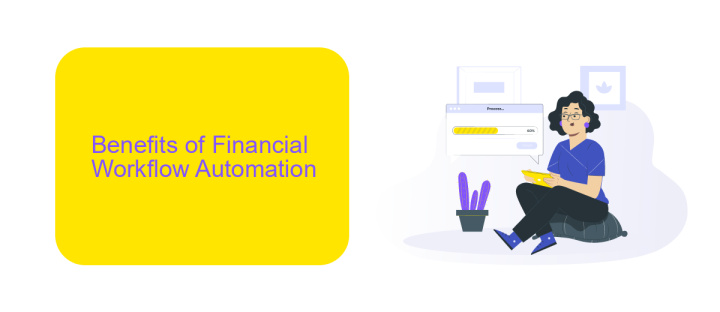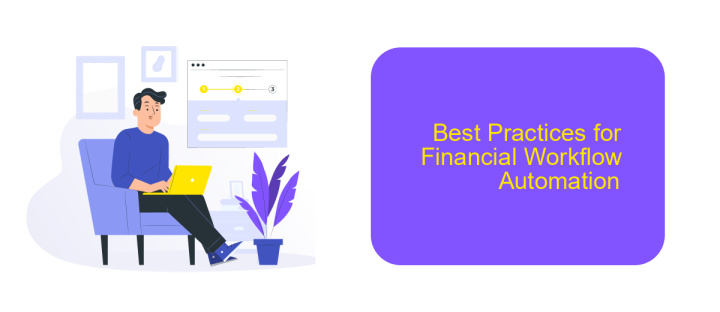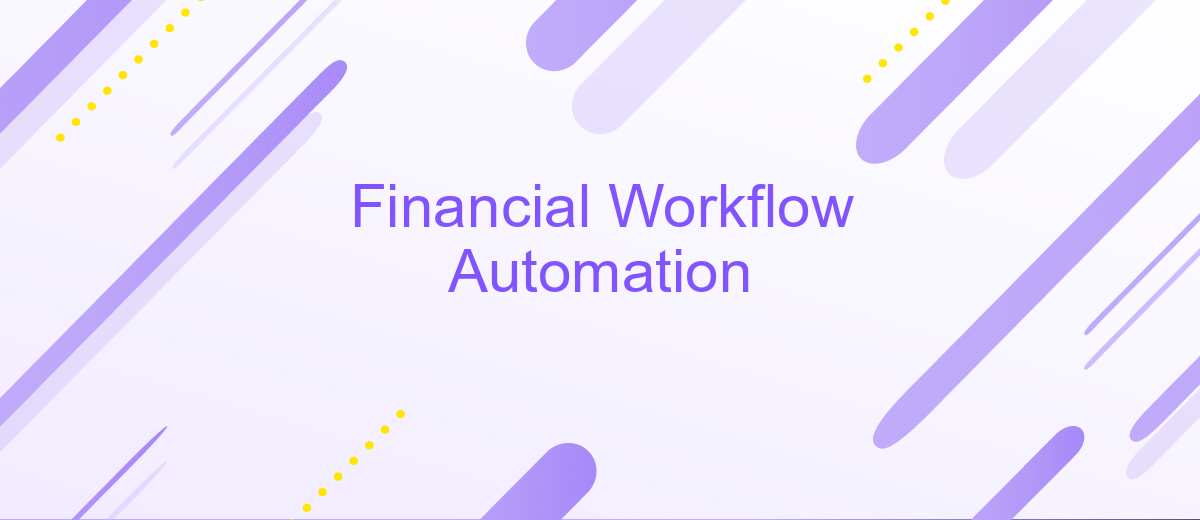Financial Workflow Automation
In today's fast-paced financial landscape, businesses are increasingly turning to financial workflow automation to streamline operations, enhance accuracy, and reduce costs. By leveraging advanced technologies, companies can automate repetitive tasks, improve compliance, and gain real-time insights into their financial health. This article explores the benefits, challenges, and best practices for implementing financial workflow automation in modern enterprises.
Introduction
In today’s fast-paced financial environment, automating workflow processes has become essential for businesses striving for efficiency and accuracy. Financial workflow automation streamlines repetitive tasks, reduces human error, and enhances productivity, enabling organizations to focus on strategic decision-making and growth.
- Automated data entry and processing
- Seamless integration with financial software
- Real-time monitoring and reporting
- Improved compliance and audit trails
One of the key components of successful financial workflow automation is the integration of various financial systems and tools. Services like ApiX-Drive facilitate these integrations by connecting different software applications, ensuring smooth data flow and synchronization. By leveraging such tools, businesses can achieve a cohesive and efficient financial ecosystem that supports their operational and strategic goals.
Benefits of Financial Workflow Automation

Financial workflow automation significantly enhances efficiency by streamlining repetitive tasks and reducing human error. Automated processes ensure that financial operations such as invoicing, payroll, and reporting are completed accurately and swiftly, freeing up valuable time for employees to focus on more strategic activities. This leads to increased productivity and cost savings for businesses, as manual interventions are minimized and processes are consistently executed without delays.
Moreover, financial workflow automation facilitates better data management and compliance. By integrating various financial systems and tools, such as ApiX-Drive, businesses can seamlessly connect their financial data sources, ensuring real-time data synchronization and accuracy. This integration not only improves decision-making with up-to-date information but also helps in meeting regulatory requirements by maintaining accurate records and audit trails. As a result, companies can achieve greater transparency and reliability in their financial operations.
How to Automate Financial Workflows

Automating financial workflows can significantly enhance efficiency and accuracy in your financial operations. Begin by identifying repetitive tasks that consume considerable time and resources. Common examples include invoice processing, expense management, and financial reporting.
- Map out your current workflows to understand each step and identify bottlenecks.
- Select a reliable automation tool that suits your business needs. For instance, ApiX-Drive can help integrate various financial systems seamlessly.
- Configure the chosen tool to automate data entry, synchronize accounts, and generate real-time reports.
- Test the automated workflows to ensure they function correctly and make adjustments as needed.
- Train your team to adapt to the new system and monitor its performance regularly.
By following these steps, you can streamline your financial workflows, reduce errors, and allocate more time to strategic tasks. Tools like ApiX-Drive offer robust integration capabilities, allowing you to connect different financial systems effortlessly and optimize your financial management processes.
Best Practices for Financial Workflow Automation

Implementing financial workflow automation can significantly enhance efficiency and accuracy in financial processes. To achieve the best results, it is essential to follow certain best practices that ensure smooth and effective automation.
First, thoroughly analyze your existing financial workflows to identify repetitive and time-consuming tasks that can be automated. Understanding the current processes will help in selecting the right tools and strategies for automation.
- Choose reliable automation tools that integrate seamlessly with your existing financial systems.
- Ensure data security and compliance with regulatory standards.
- Regularly monitor and update automated workflows to adapt to changing business needs.
- Provide training and support to employees to facilitate smooth adoption of automation tools.
For seamless integration of various financial systems, consider using services like ApiX-Drive, which can connect and automate multiple applications without requiring complex coding. By adhering to these best practices, organizations can optimize their financial workflows, reduce errors, and enhance overall productivity.
Conclusion
In conclusion, financial workflow automation stands as a pivotal advancement in modern finance, streamlining processes, reducing errors, and enhancing overall efficiency. By automating repetitive tasks, financial institutions can focus more on strategic decision-making and less on manual operations. The integration of advanced technologies, such as AI and machine learning, further augments the capabilities of financial systems, ensuring accuracy and speed in financial transactions and reporting.
Moreover, the implementation of tools like ApiX-Drive facilitates seamless integration between various financial platforms, enabling a cohesive and efficient workflow. ApiX-Drive's ability to connect diverse applications without the need for coding empowers organizations to customize their financial processes to suit their unique needs. As financial automation continues to evolve, leveraging such integration services will be crucial for maintaining competitiveness and achieving operational excellence in the financial sector.
- Automate the work of an online store or landing
- Empower through integration
- Don't spend money on programmers and integrators
- Save time by automating routine tasks
FAQ
What is Financial Workflow Automation?
How can Financial Workflow Automation benefit my business?
What types of financial processes can be automated?
What tools can I use to implement Financial Workflow Automation?
Is Financial Workflow Automation secure?
Apix-Drive is a universal tool that will quickly streamline any workflow, freeing you from routine and possible financial losses. Try ApiX-Drive in action and see how useful it is for you personally. In the meantime, when you are setting up connections between systems, think about where you are investing your free time, because now you will have much more of it.


